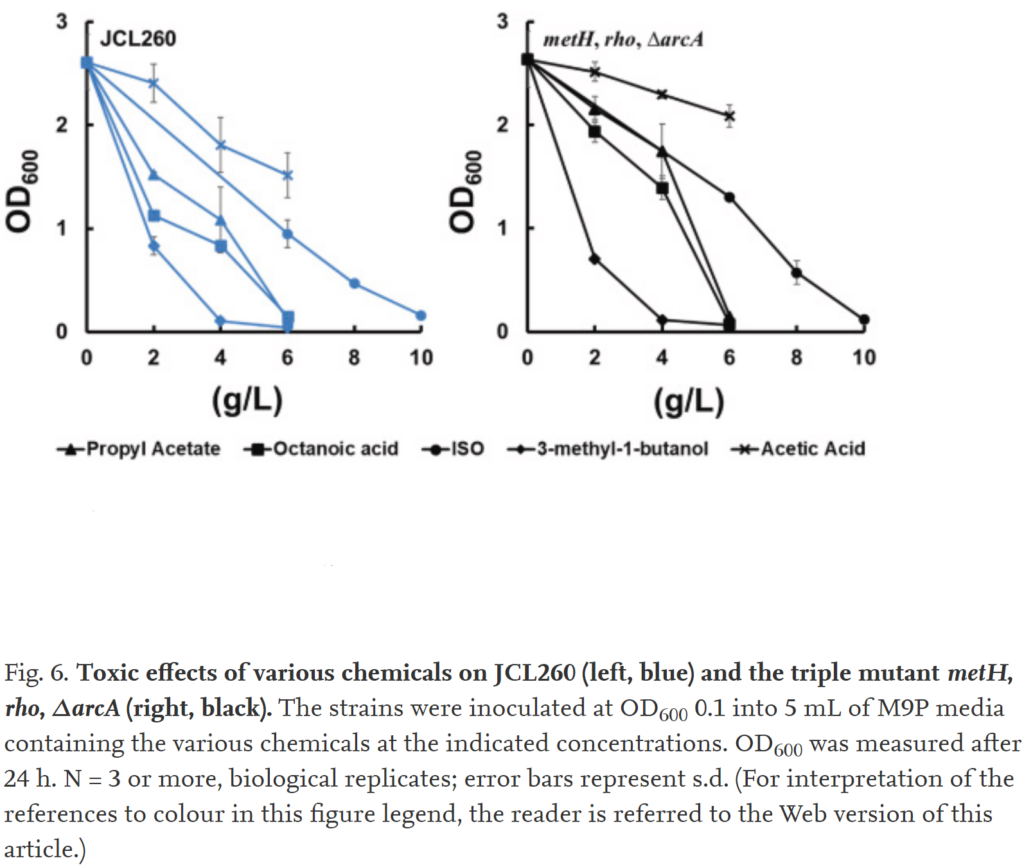New article in Metabolic Engineering
A new publication from collaborators and our lab members, Dr. Erol S. Kavvas, Dr. Xiaokang Wang, and Dr. Ilias Tagkopoulos, about Adaptive laboratory evolution for improved tolerance of isobutyl acetate in Escherichia coli.

Abstract: Previously, Escherichia coli was engineered to produce isobutyl acetate (IBA). Titers greater than the toxicity threshold (3 g/L) were achieved by using layer-assisted production. To avoid this costly and complex method, adaptive laboratory evolution (ALE) was applied to E. coli for improved IBA tolerance. Over 37 rounds of selective pressure, 22 IBA-tolerant mutants were isolated. Remarkably, these mutants not only tolerate high IBA concentrations, they also produce higher IBA titers. Using whole-genome sequencing followed by CRISPR/Cas9 mediated genome editing, the mutations (SNPs in metH, rho and deletion of arcA) that confer improved tolerance and higher titers were elucidated. The improved IBA titers in the evolved mutants were a result of an increased supply of acetyl-CoA and altered transcriptional machinery. Without the use of phase separation, a strain capable of 3.2-fold greater IBA production than the parent strain was constructed by combing select beneficial mutations. These results highlight the impact improved tolerance has on the production capability of a biosynthetic system.
Reference: Matson, Morgan M., Mateo M. Cepeda, Angela Zhang, Anna E. Case, Erol S. Kavvas, Xiaokang Wang, Austin L. Carroll, Ilias Tagkopoulos, Shota Atsumi. “Adaptive laboratory evolution for improved tolerance of isobutyl acetate in Escherichia coli.” Metabolic Engineering (2021). doi: 10.1016/j.ymben.2021.11.002 (link)